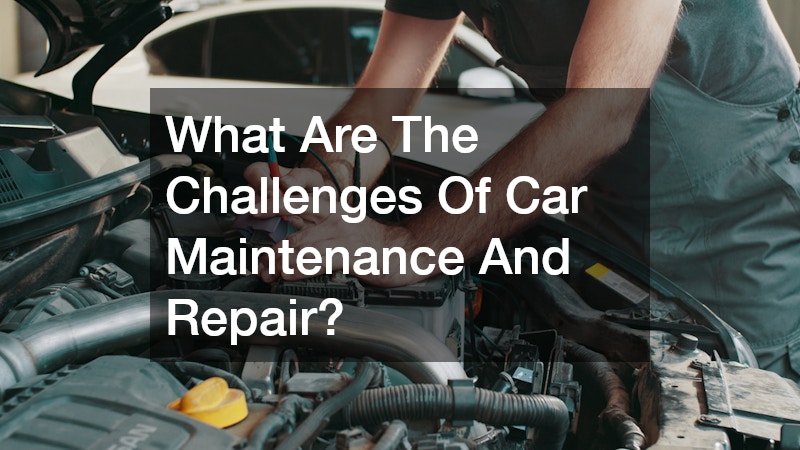Owning a car is more than just having a mode of transportation; it offers convenience, freedom, and access to opportunities that can greatly enhance daily life. However, it also comes with responsibilities, ranging from maintenance and repairs to adherence to legal requirements. In the event of serious accidents, having access to an attorney for car accident claims can help protect your rights and navigate legal processes. This article explores the numerous benefits and challenges of car ownership, while answering common questions regarding both the perks and obligations associated with having a personal vehicle.
What Are The Primary Advantages Of Owning A Car?
Convenience And Freedom
One of the most obvious advantages of owning a car is the freedom it provides. Unlike relying on public transport schedules or ride-sharing availability, a personal vehicle allows you to travel on your own terms. This freedom extends beyond daily commutes, offering the ability to take spontaneous trips, run errands efficiently, and explore new areas without dependency. Having a car also means you can carry items, pets, or passengers comfortably, making day-to-day life much simpler.
Safety And Security
Modern vehicles come equipped with advanced safety features, providing a level of security often unmatched by public transport. Additionally, car owners can control their environment, avoiding crowded spaces and reducing exposure to potential health risks. Regular visits to an auto repair shop for maintenance and inspections, along with paint protection and auto glass repair to prevent damage, also contribute to a safer driving experience by ensuring that the vehicle remains in optimal condition.
Comfort And Autonomy
A personal car provides comfort tailored to your preferences. Whether it’s controlling the temperature, selecting music, or adjusting seating arrangements, a car becomes a personal space that caters to your needs. This autonomy extends to route selection and travel pace, allowing you to avoid stressful congestion or detours, which can enhance overall comfort during trips.
Economic Opportunities
Car ownership can expand economic opportunities. Access to a personal vehicle allows for flexible employment options, including jobs that require commuting to remote locations or transporting goods. A reliable vehicle can also facilitate side businesses, such as rideshare driving, where having dependable transportation is critical. Engaging with a local auto dealer ensures that you have access to quality vehicles that support these economic pursuits.
How Does Car Ownership Impact Personal Finances?

Initial Purchase Costs
Buying a car requires a significant upfront investment. Prices vary depending on make, model, and features, and financing options may incur interest charges. Consulting a local auto dealer can help prospective buyers find vehicles that balance affordability with reliability, making the initial investment manageable while ensuring long-term satisfaction.
Maintenance And Repairs
Ongoing maintenance is a crucial financial responsibility. Regular servicing at an auto repair shop keeps the vehicle running efficiently and prevents costly breakdowns. Repairs, whether minor or major, can impact personal budgets significantly. For instance, transmission issues or paint restoration after wear and tear require professional attention.
Insurance Expenses
Maintaining an insurance policy is mandatory in many regions and represents a recurring cost of ownership. Insurance protects both the driver and others on the road in case of accidents, covering damages and liability. Evaluating coverage options and ensuring proper protection can prevent unexpected financial burdens while offering peace of mind during daily driving.
Depreciation
Vehicles lose value over time due to depreciation, which is influenced by factors such as mileage, condition, and market demand. Understanding depreciation helps car owners plan for future financial decisions, including trade-ins and resale. Investing in paint protection and regular servicing can mitigate the negative effects of depreciation by preserving the vehicle’s appearance and mechanical integrity.
Resale Value
A well-maintained car retains better resale value. Potential buyers are attracted to vehicles that have been serviced regularly and protected against wear. Keeping records of maintenance, repairs, and upgrades, as well as providing proof of care from reputable auto repair shops, enhances resale prospects and ensures a more favorable return on investment.
What Are The Environmental Impacts Of Car Ownership?
Emissions And Pollution
Cars contribute to air pollution through emissions, which can negatively impact the environment and public health. Choosing vehicles with lower emissions or adopting fuel-efficient driving habits reduces this impact. Regular maintenance, such as ensuring the engine and transmission are functioning efficiently, helps minimize unnecessary fuel consumption and emissions.
Resource Consumption
Car production consumes significant natural resources, including metals, plastics, and energy. Awareness of the resources involved in car manufacturing encourages responsible ownership, prompting actions like recycling parts and avoiding wasteful practices that strain environmental resources.
Eco-Friendly Alternatives
Owners looking to lower their environmental impact may choose hybrid or electric vehicles. Visiting a local auto dealer specializing in eco-friendly cars helps make informed, sustainable choices.
Recycling And Disposal
Proper recycling of vehicle parts like batteries, tires, and fluids is vital. Auto repair shops often guide safe disposal, helping owners stay eco-conscious and maintain their cars.
Green Driving Practices
Adopting green driving habits like smooth acceleration, avoiding idling, and proper tire pressure supports sustainability, prolongs transmission and brake life, and improves fuel efficiency.
How Does Having A Car Influence Lifestyle And Productivity?

Enhanced Mobility
Car ownership boosts mobility, letting individuals travel independently to errands, work, and recreational activities while enjoying greater freedom and control.
Access To Remote Areas
With a personal vehicle, exploring remote or rural areas becomes feasible. Whether for leisure, work, or visiting family, cars bridge distances that would otherwise be challenging to traverse. This access expands lifestyle options and creates opportunities for unique experiences and adventures.
Influence On Work-Life Balance
A reliable vehicle improves work-life balance by reducing commute stress and ensuring convenient travel. 24-hour towing prevents breakdowns from disrupting routines, while auto glass repair keeps the vehicle safe and road-ready.
Participation In Social Activities
Owning a car allows active participation in social and community events. Carpooling, group outings, and visits to friends and family become more accessible. Reliable transportation facilitates social engagement, which positively impacts mental health and community involvement.
Time Management
Efficient time management is another benefit of car ownership. Personal vehicles reduce reliance on public transit schedules, allowing owners to optimise travel routes and schedules. This control over transportation time enhances productivity, leaving more room for work, leisure, and personal obligations.
What Are The Legal Responsibilities Of Car Ownership?
Licensing And Registration
Maintaining a valid driver’s license and vehicle registration is a fundamental legal responsibility. Compliance ensures that owners can operate their vehicles without risking fines or penalties. Regular checks on registration status and renewal deadlines help maintain legal compliance and safe driving practices.
Adherence To Traffic Laws
Car owners must obey all traffic laws, including speed limits, signaling, and parking regulations. Adherence to these rules protects both drivers and the public while fostering a culture of responsible driving. Legal violations can result in fines, license suspension, or legal action, underscoring the importance of vigilance.
Liability Insurance Requirements
Maintaining adequate insurance coverage is not only a financial safeguard but also a legal necessity in many regions. An insurance policy provides protection in the event of accidents, covering damages to both property and individuals. Having health insurance is also important, as it helps cover medical expenses in case of injury during a car accident. Ensuring proper coverage reduces risk and ensures compliance with legal obligations.
Emissions Testing
Certain jurisdictions require periodic emissions testing to ensure vehicles meet environmental standards. Compliance is a legal requirement that also promotes eco-friendly practices and prolongs vehicle lifespan. Routine visits to auto repair shops can help owners maintain engines and transmissions in compliance with emissions regulations.
Record Keeping
Keeping accurate records of vehicle maintenance, insurance, and repairs is essential for legal and financial reasons. Documentation supports warranty claims, resale negotiations, and insurance processes, while demonstrating responsible ownership and adherence to regulations.
How Does Owning A Car Affect Social Dynamics?

Family Transportation
Cars play a vital role in family life by providing safe, convenient transportation for children, elders, and other family members. Daily routines, such as school runs or grocery trips, become more manageable with a personal vehicle. Paint protection and regular servicing ensure that the family car remains reliable and presentable.
Carpooling And Ride-Sharing
Car ownership facilitates carpooling and ride-sharing, promoting efficient travel and reducing environmental impact. Sharing rides helps build social connections, save fuel costs, and ease traffic congestion, creating benefits for both owners and the broader community.
Community Interaction
Having a car allows greater engagement in community activities. Attendance at local events, volunteer work, or neighborhood meetings is more convenient, fostering stronger ties and social cohesion. This mobility supports active participation and community well-being.
Status And Perception
Owning a well-maintained vehicle can influence social perception and status. People often associate cars with responsibility, independence, and lifestyle choices. A car that is regularly serviced and protected with paint protection reflects a level of care and attention to detail that can positively shape social impressions.
Social Networking Opportunities
Vehicles facilitate social networking by connecting owners with peers for work, recreation, or education, making events and meetings more accessible.
What Are The Technological Advancements In Modern Vehicles?
Safety Features
Modern cars are equipped with advanced safety features such as lane assist, collision detection, and automatic braking. These technologies enhance driving safety and reduce accident risks, complementing traditional maintenance efforts conducted at auto repair shops.
Fuel Efficiency Improvements
Technological advancements have improved fuel efficiency, reducing operating costs and environmental impact. Innovations in engine design, hybrid technology, and alternative fuels allow drivers to save money while supporting sustainable practices.
Infotainment Systems
Infotainment systems provide entertainment, navigation, and communication features that enhance the driving experience. Integration with smartphones and smart devices allows owners to remain connected while maintaining focus on the road.
Autonomous Driving Technologies
Autonomous driving technologies are gradually transforming car ownership. Features like adaptive cruise control and parking assistance make driving safer and more convenient, while highlighting the evolving responsibilities of owners in understanding and maintaining these systems.
Connectivity And Smart Integration
Cars now offer connectivity options, from Wi-Fi hotspots to remote diagnostics. Smart integration allows for real-time monitoring of vehicle health, including transmission performance, alerts for service needs, and coordination with local auto dealers or repair shops for prompt attention.
What Are The Challenges Of Car Maintenance And Repair?

Regular Servicing Needs
Cars require routine servicing to remain reliable. Oil changes, brake inspections, and transmission checks are essential to prevent breakdowns. Partnering with a trusted auto repair shop ensures timely attention to these needs, prolonging vehicle life and performance.
Common Mechanical Issues
Mechanical issues like transmission failures, engine problems, or brake wear are inevitable. Addressing them proactively minimizes costs, and a local auto dealer can provide guidance.
Finding Reliable Mechanics
Identifying trustworthy mechanics or service providers is crucial. Auto repair shops vary in quality, and finding professionals who provide transparent, skilled service protects your investment and ensures vehicle safety.
Understanding Warranties
Warranties offer protection against certain mechanical failures. Understanding the terms and conditions helps owners avoid unexpected expenses and ensures that repairs like transmission replacement or paint restoration are covered when applicable.
DIY Maintenance Tips
Owners can handle tasks like tire checks, fluid top-ups, and basic cleaning. Regular visits to a local car wash maintain the exterior and reduce wear on critical components.
How Do Fuel Types And Choices Impact Car Ownership?
Gasoline Vs. Diesel
Choosing between gasoline and diesel affects fuel efficiency, engine performance, and operating costs. Diesel engines may offer better mileage for long-distance driving, while gasoline engines often provide lower initial costs and maintenance simplicity.
Electric Vehicles
Electric vehicles (EVs) are gaining popularity due to lower emissions and reduced fuel expenses. Charging infrastructure, battery lifespan, and maintenance considerations, such as transmission-free drivetrains, influence ownership decisions.
Alternative Fuels
Alternative fuels, including biofuels and hydrogen, present options for eco-conscious drivers. Local auto dealers increasingly offer vehicles compatible with these fuels, supporting sustainable choices while maintaining performance.
Fuel Efficiency
Fuel-efficient driving reduces costs and environmental impact. Practices such as avoiding rapid acceleration, maintaining optimal tire pressure, and following regular service schedules help maximize efficiency and prolong vehicle longevity.
Impact Of Fuel Prices
Fuel price fluctuations influence the total cost of car ownership. Owners must consider fuel budgeting and may adjust driving habits accordingly. Vehicles that require less frequent servicing and efficient transmission systems offer resilience against price volatility.
What Are The Future Trends In Car Ownership?
Shift Towards Sustainability
Car ownership is increasingly shaped by sustainability trends. Hybrid and electric vehicles, coupled with eco-friendly driving practices, reduce environmental impact while preserving personal convenience. Advances in paint protection and durable materials also contribute to sustainability.
Advances In Autonomous Vehicles
Autonomous vehicles are transforming how people interact with cars. While full autonomy remains in development, features like self-parking and adaptive cruise control are already enhancing safety and convenience, emphasizing the importance of staying informed about technological responsibilities.
Flexible Ownership Models
Car sharing, subscription services, and leasing offer flexible ownership alternatives. These models provide access to vehicles without long-term financial commitments, allowing users to enjoy the advantages of mobility while minimizing maintenance responsibilities.
Technological Integration
Future vehicles will feature increasing technological integration, including advanced infotainment, vehicle-to-vehicle communication, and smart diagnostics. Connectivity with auto repair shops and local auto dealers will streamline maintenance, ensuring cars remain reliable and safe.
Owning a car offers a wealth of advantages, from convenience and freedom to economic opportunities and enhanced lifestyle options. However, it also comes with responsibilities, including maintenance, legal compliance, insurance, and environmental considerations. By understanding the financial, technological, and social aspects of vehicle ownership, drivers can maximize benefits while minimizing risks. With advancements in sustainability, autonomous driving, and smart integration, the landscape of car ownership continues to evolve, offering new opportunities and challenges for today’s responsible and informed drivers.



